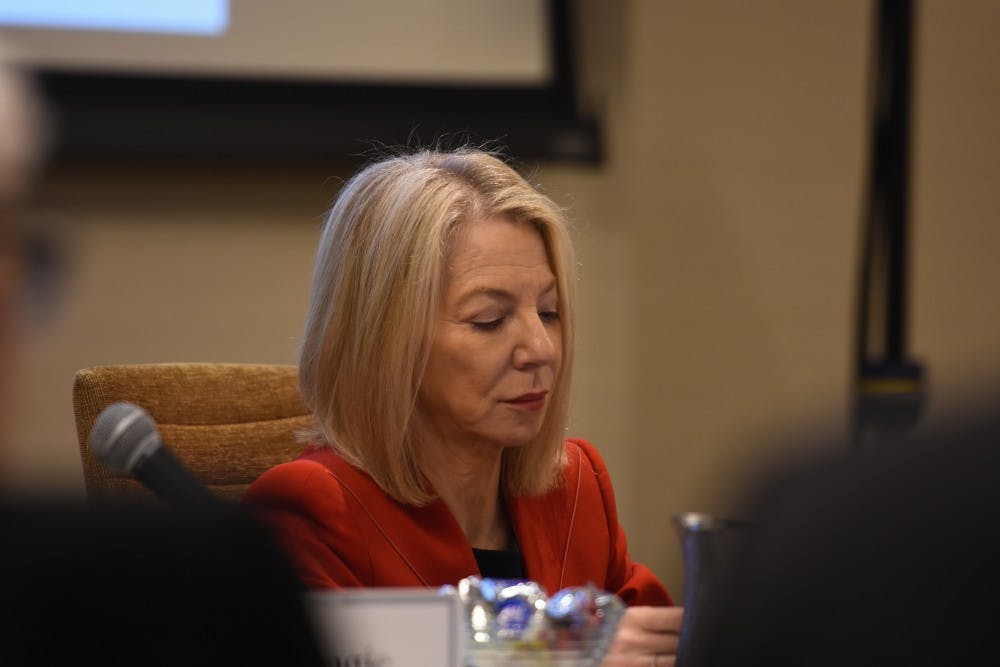The announcement that Penn’s cost of attendance will increase by 3.8 percent has members of Penn’s community and admissions experts divided on the implications of the recent price hike.
Many say that while increasing cost of attendance and tuition is standard practice and likely will not have immediate repercussions, the constant increase in price could result in long term consequences.
On March 2, Penn's Board of Trustees voted to increase undergraduate tuition by 3.8 percent for the upcoming academic year. The total cost of attendance now will exceed $70,000 for the first time, increasing to $71,200 for the 2018-2019 academic year from the $68,600 for the 2017-2018 academic year.
Included in the cost of attendance, tuition will increase from $47,416 to $49,220, room and board from $15,066 to $15,616, and fees from $6,118 to $6,364.
The budget for financial aid will also increase by 5.25 percent, with Penn allocating a total of $237 million for financial aid purposes in the upcoming school year.

College junior and secretary of Penn First Lyndsi Burcham said she does not expect the increase to have any impact on the first-generation low-income community at Penn right now. According to Burcham, since Penn’s financial aid is need-based, most FGLI students will be expected to pay the same amount next year as they do now.
Despite not directly affecting the college price-tag for FGLI students, the tuition increase could have long-term impacts on the FGLI community.
RELATED:
Penn's cost of attendance will exceed $70,000 next year — a 3.8 percent increase
The newly-elected leaders for Penn's 5B minority coalition groups share their goals for 2018
“It’s not really going to hurt current or continuing Penn students but that raising number is probably going to prevent FGLI high school students from applying to Penn or schools like it.”
Brian Taylor, director of the college counseling practice Ivy Coach, said that the yearly tuition increases are standard practice and normal procedures for any business.
Noting that the cost of attending Penn has increased by similar rates for the past several years, Taylor said that it is unlikely that next year’s increase will significantly affect students.
“The University of Pennsylvania, just like every other highly-selective college, is a business,” Taylor said. “When inflation is 2.8 percent, and there’s a tuition hike of 3.8 percent, that’s just not that consequential.”
Laurie Kopp Weingarten, Co-Founder and director of One-Stop College Counseling, agreed that Penn’s planned tuition increase is standard practice in the Ivy League, but still expressed worry over the continued rate of tuition hikes.
“It looks like in the next five years it’s going to be over almost $86,000 based on the traditional trajectories of these increases and then in ten years its going to be over 100,000 - that is really scary,” Weingarten said.
Weingarten also said that the yearly increase of tuition by 3 to 4 percent ultimately harms applicants from one set of society-economic backgrounds. According to Weingarten, upper-middle class students who, although eligible for little financial aid, come from families who aren’t capable of paying for full tuition, suffer the most from these changes.
“The 'super rich' groan about but can afford it - it’s the upper-middle class that really gets squeezed with this stuff,” Weingarten said. “The ones who really don’t think they can afford it but, according to Penn’s formula, they can afford it so they have to eat the entire tuition increase.”
Weingarten added that she wants to see tuition increases that simply match the inflation rates.
“This is real money to real people. It’s not theoretical. I think the fair thing would be to go up at the cost of inflation,” Weingarten said.



